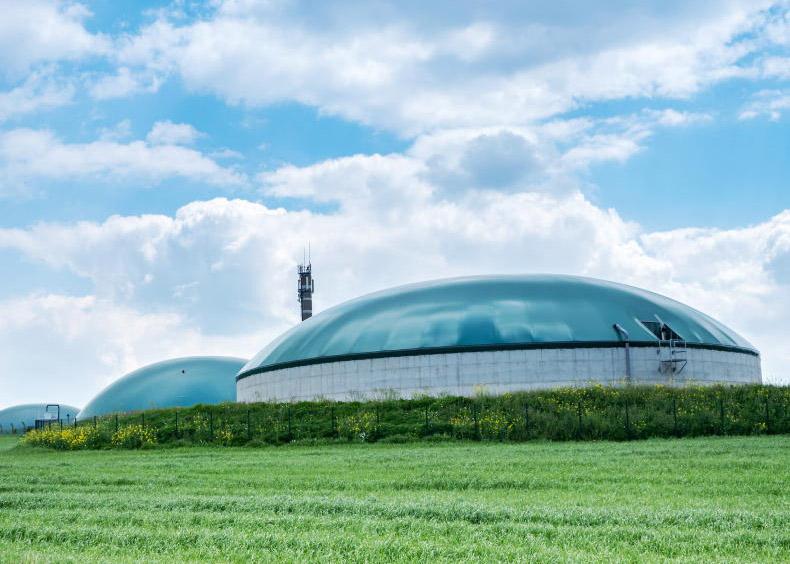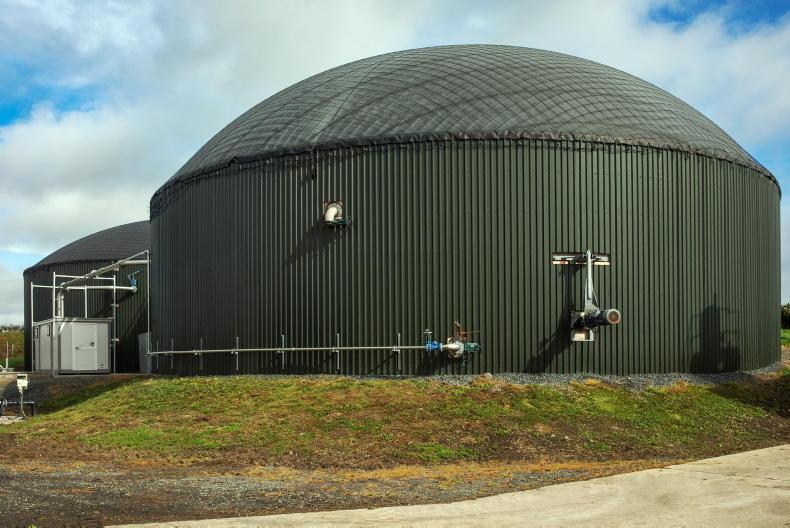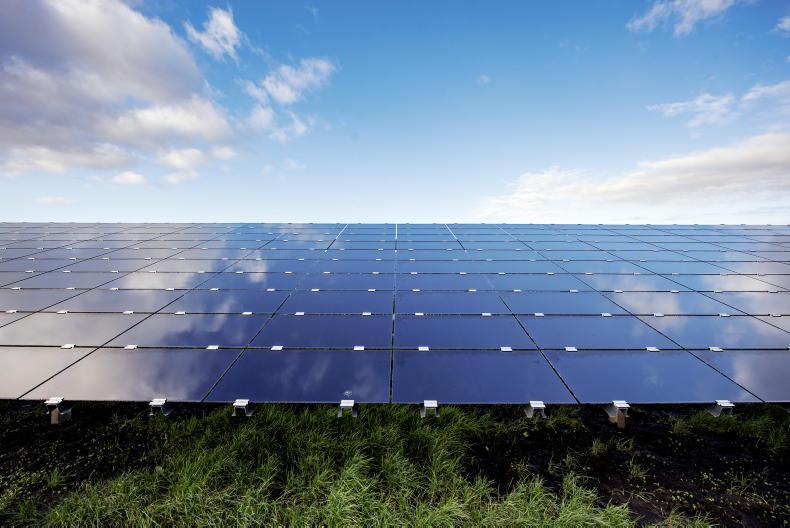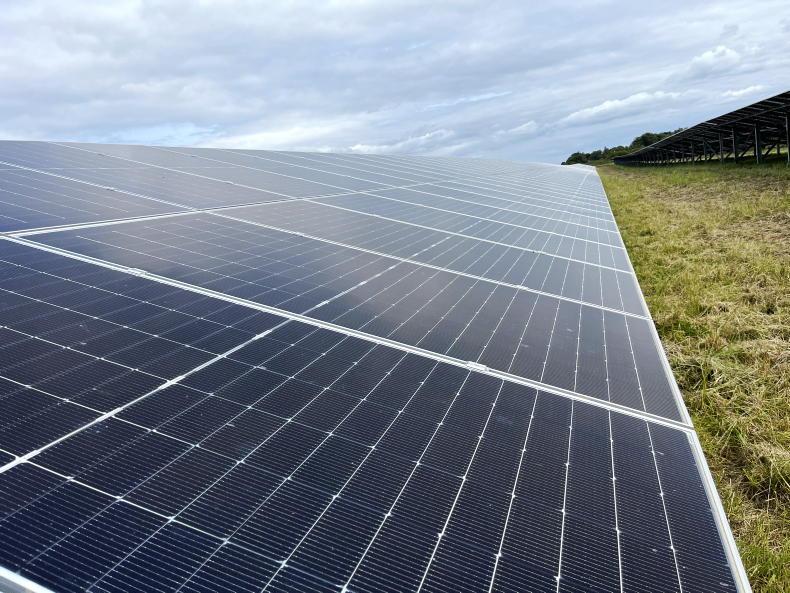Government has unveiled enhanced supports for businesses investing in solar energy projects, with 20% to 30% of investment costs to be covered in grant aid.
The changes to the non-domestic microgeneration scheme, operated will allow solar projects to have a pay-back period of as little as five years.
Funding will range from €2,700 to €162,600 depending on the size of the investment, and supports will be offered to a wider range of businesses to make the switch to solar energy.
Tiered grant supports will be available for solar PV installation units greater than 6 kWp and up to 1,000 kWp (1 MW) in capacity, which is the equivalent to 2,500 solar panels.
Previous investment supports under the scheme were set significantly lower at 6 kWp.
The new Targeted Agricultural Modernisation Scheme (TAMS) does allow for high grant rates of 60% for solar panels and battery units at an investment ceiling of €90,000.
This is a standalone ceiling that is not affected by investments like sheds, handling facilities or machinery.
€15m in funds
The Department of the Environment has yet to confirm to the Irish Farmers Journal if farms operating as sole traders will be able to access the funds.
The enhanced pilot scheme has been estimated to cost up to €15 million in 2023, and will be funded by unused Temporary Business Energy Support Scheme (TBESS) funding.
The Sustainable Energy Authority Of Ireland (SEAI) will administer the scheme and it is expected that applications will open from mid-July onwards.
Making solar more attractive
Minister Ryan reminded businesses that some red tape around the installation of rooftop solar has already been cut to make the option more attractive.
“We have removed planning permission requirements to install solar panels, and we’ve reduced the VAT to 0% for the supply and installation of solar panels on homes,” he commented.
“As a result, our domestic solar PV scheme operated by the SEAI is continuing to power ahead with record levels of applications in 2022 and 2023, resulting in approximately 60,000 homes now being registered as microgenerators.
“It is vital therefore that business are now afforded the same opportunity to start their energy transition journey.”
Reducing costs and carbon
Minister for Enterprise Simon Coveney stated that the move is a win-win for business costs and the environment.
“I want businesses to see the opportunities that renewable energy can provide in reducing costs, reducing carbon and increasing sustainability,” he said.
“Businesses using renewables are more resilient to price volatility, and well-placed as we decarbonise our economy.”
Read more
Changes needed to drive farm solar investment
Agrivoltaics: can crops and solar panels be co-located?
What to know about TAMS III and solar PV
Revenue guidelines on new zero-VAT rate for solar welcomed
Government has unveiled enhanced supports for businesses investing in solar energy projects, with 20% to 30% of investment costs to be covered in grant aid.
The changes to the non-domestic microgeneration scheme, operated will allow solar projects to have a pay-back period of as little as five years.
Funding will range from €2,700 to €162,600 depending on the size of the investment, and supports will be offered to a wider range of businesses to make the switch to solar energy.
Tiered grant supports will be available for solar PV installation units greater than 6 kWp and up to 1,000 kWp (1 MW) in capacity, which is the equivalent to 2,500 solar panels.
Previous investment supports under the scheme were set significantly lower at 6 kWp.
The new Targeted Agricultural Modernisation Scheme (TAMS) does allow for high grant rates of 60% for solar panels and battery units at an investment ceiling of €90,000.
This is a standalone ceiling that is not affected by investments like sheds, handling facilities or machinery.
€15m in funds
The Department of the Environment has yet to confirm to the Irish Farmers Journal if farms operating as sole traders will be able to access the funds.
The enhanced pilot scheme has been estimated to cost up to €15 million in 2023, and will be funded by unused Temporary Business Energy Support Scheme (TBESS) funding.
The Sustainable Energy Authority Of Ireland (SEAI) will administer the scheme and it is expected that applications will open from mid-July onwards.
Making solar more attractive
Minister Ryan reminded businesses that some red tape around the installation of rooftop solar has already been cut to make the option more attractive.
“We have removed planning permission requirements to install solar panels, and we’ve reduced the VAT to 0% for the supply and installation of solar panels on homes,” he commented.
“As a result, our domestic solar PV scheme operated by the SEAI is continuing to power ahead with record levels of applications in 2022 and 2023, resulting in approximately 60,000 homes now being registered as microgenerators.
“It is vital therefore that business are now afforded the same opportunity to start their energy transition journey.”
Reducing costs and carbon
Minister for Enterprise Simon Coveney stated that the move is a win-win for business costs and the environment.
“I want businesses to see the opportunities that renewable energy can provide in reducing costs, reducing carbon and increasing sustainability,” he said.
“Businesses using renewables are more resilient to price volatility, and well-placed as we decarbonise our economy.”
Read more
Changes needed to drive farm solar investment
Agrivoltaics: can crops and solar panels be co-located?
What to know about TAMS III and solar PV
Revenue guidelines on new zero-VAT rate for solar welcomed









SHARING OPTIONS